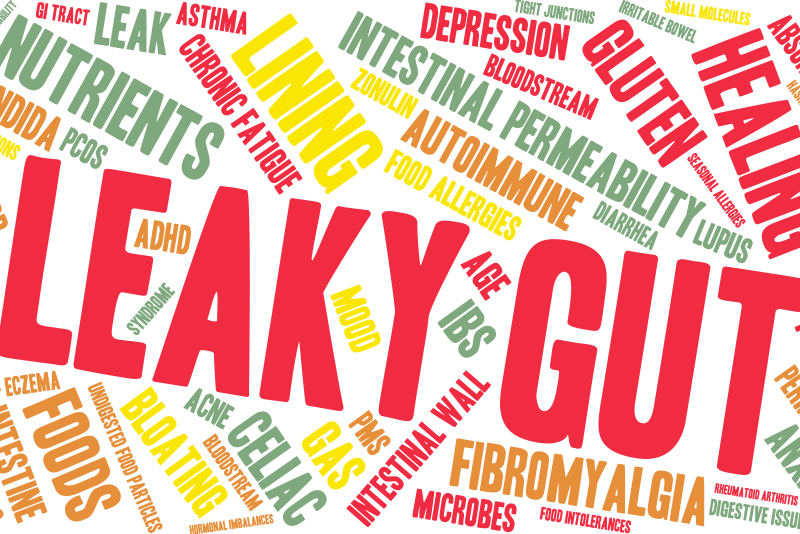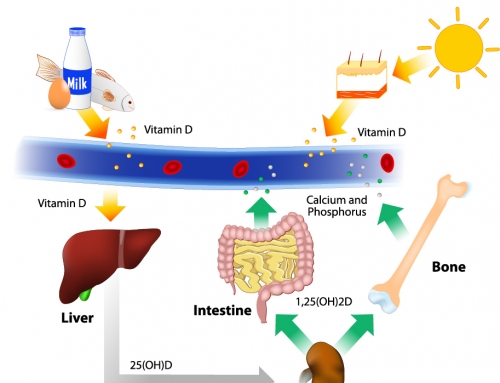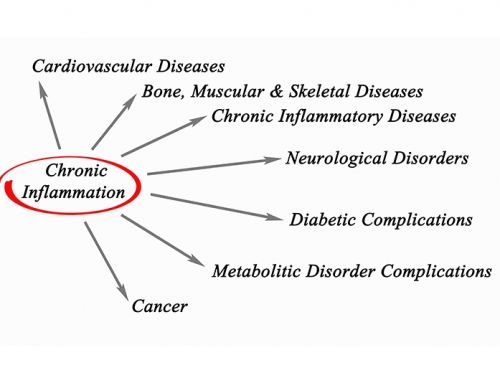Leaky gut (also called Increased Intestinal Permeability) is an unrecognized medical condition that many believe contributes to a host of seemingly diverse adverse health conditions including many autoimmune and inflammatory diseases. The theory is that our intestines become more permeable meaning that the spaces between our cells in our intestines become irritated, inflamed and allow more things to escape than should over time due to several factors including diet, medication use and chronic stress. These small holes in our intestines meant to transfer nutrients from our food to our blood stream become irritated and inflamed allowing toxins, undigested food particles, yeast, bacteria and viruses to escape into the blood and eventually into body tissue. These “foreign” particles are recognized and “rightly” attacked by our immune system causing widespread inflammation and seemingly unrelated symptoms including headache, brain fog, joint pain, skin rashes, nasal congestion, cramping, bloating etc. Left unchecked the cycle of irritation and inflammation leads to more severe health conditions including Irritable Bowel Disease, Fibromyalgia, Psoriasis etc.
Likely causes of Leaky Gut are diet, medication use and chronic stress. Cortisol is a steroid hormone, like Vitamin D, that is released in response to stress as part of our “fight or flight” response. Its function is to increase blood glucose to provide energy to fight or fly, to suppress the immune response and inflammation and to help metabolize protein, fat and carbohydrates. Chronic repeated stress causes cortisol to lose its effectiveness meaning that the immune response and inflammation are unchecked, glucose is not released but craved and the metabolism of protein, fat and carbohydrates is impacted. For these reasons appetites of the chronically stressed are increased to make up for the now ineffective cortisol and the cycle continues. Certain medications irritate the lining of the small intestine causing inflammation and making it more permeable. Chief among these medications are NSAIDs (Non Steroidal Anti Inflammatory Drugs). Antibiotics, used to treat infections, are lifesavers, when used appropriately and sparingly. They fight the “bad” bacteria in our bodies that is making us sick. Unfortunately, they also wipe out the “good” bacteria in our digestive tracts. Over prescribed and chronic use of antibiotics can have a devastating effect on our normal flora (the community of beneficial yeast and bacteria in our guts). When our normal flora is destroyed it allows “bad” yeast and bacteria to populate our guts and this overgrowth damages our intestines making them more permeable. For this reason it is a very good idea to use probiotics (good bacteria) to repopulate our digestive tract with beneficial bacteria to avoid yeast overgrowth. As we learn more and more about digestive health it becomes apparent that a healthy digestive tract makes for a healthy immune system.
Foods that are harder for us to digest such as refined sugar and flour, preservatives, artificial sweeteners and certain proteins (casein, gluten) irritate and inflame the small intestine causing it to become more permeable. Toxins, that should be contained in the intestinal tract are allowed to leak into the bloodstream and into tissues and organs throughout our bodies. Because these toxins are now widespread in our bodies it causes a systemic inflammation that manifests as seemingly unrelated symptoms. Food sensitivities are on the rise because food particles are making there way out of the intestines and into places they shouldn’t be and forcing our immune system to react.
While there are several causes for a leaky gut there is one effect that is common to all of the negative symptoms associated: Inflammation.






